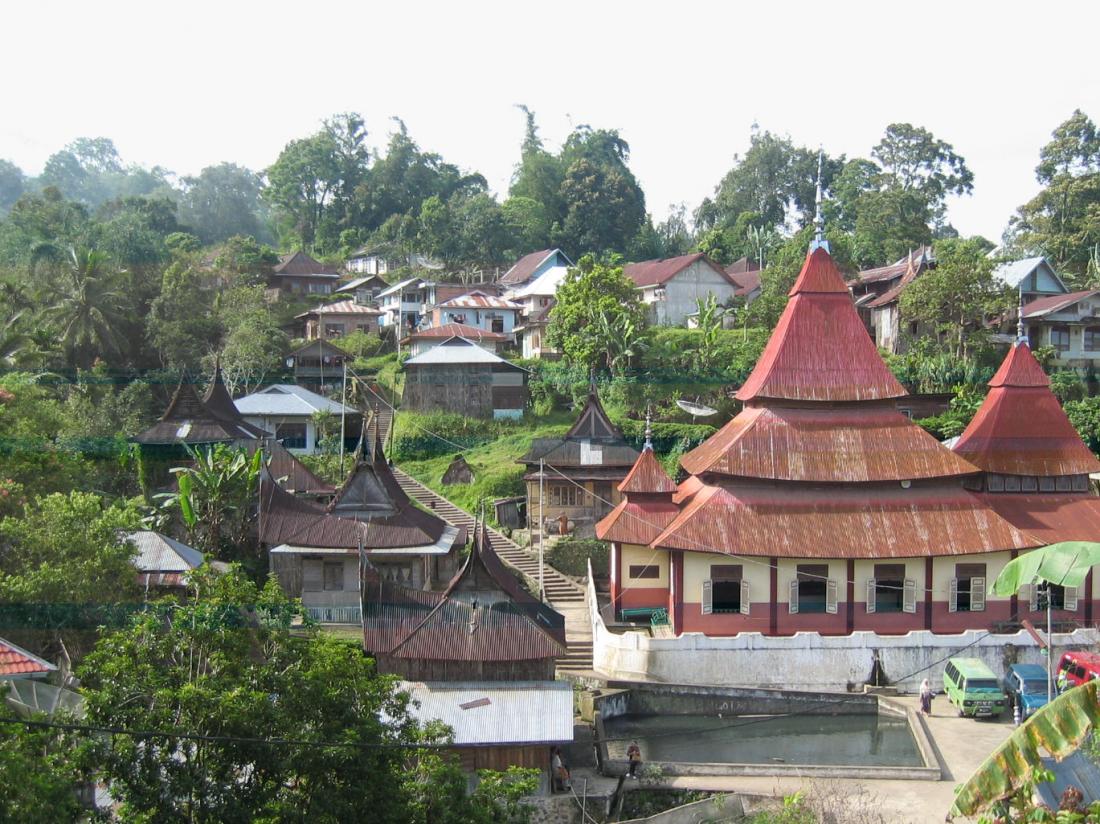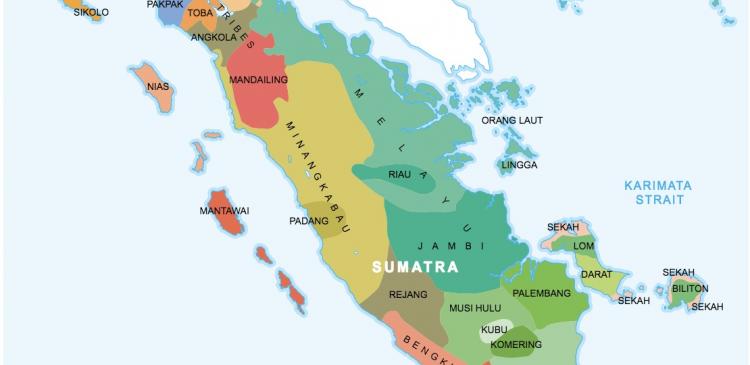Minangkabau communities in Indonesia’s West Sumatra, such as Pariangan village (pictured), appear more resistant than others to Islamic radicalism because of their unique blend of traditional culture and form of Sufi Islam.
The Minangkabau people in Indonesia’s West Sumatra practice a unique blend of culture and religion that could be making them more resistant than others to Islamic radicalism, according to a study published in the Pertanika Journal of Social Sciences & Humanities. Understanding what gives these people their resilience could help combat radicalism elsewhere. The Minangkabau are the largest ethnic group on Indonesia’s island of Sumatra. They are the world’s largest matrilineal society, where children take their mother’s name, property is inherited by daughters, and the family home is formed of women, with husbands merely given visiting rights. Traditionally, the Minangkabau are animists, believing that living and inanimate objects and places all possess an element of spirituality. The culture also absorbed elements of Hinduism and Buddhism. When Islam arrived in West Sumatra in the 16th Century, the Minangkabau merged it into their existing culture rather than wholly replacing their long-standing traditions. Welhendri Azwar of The State Islamic University of Imam Bonjol Padang in West Sumatra says radicalism does not develop in the province because the local communities possess a self-defense mechanism rooted in their form of Sufi Islam. The Minangkabau’s ‘Tariqa’ culture places emphasis on developing an inner spiritual experience that is then reinforced by following the teachings of Islamic Shariah law. Azwar reviewed the literature on Minangkabau’s unique form of Islam and conducted focus groups and individual interviews to gain an in-depth understanding of this culture’s resilience against radicalism. He found that the peaceful and pacifist Minangkabau Tariqa culture rejects violence and aggressive means of imposing ideology. Their strong attachments to local traditions and culture mean that they do not accept having their varied customs criticized by hardliners. Instead, they practice the parable: “Do not fight violence with violence, but welcome violence with friendliness.” The Minangkabau’s form of Islam also gives lots of room for open interpretation of religious text. This means that the rigid interpretations imposed by radical Muslims fail to gain a foothold amongst local communities. The Tariqa Sufi culture is largely based on the presence of a teacher who has students or followers. Tariqa teachers are known for their strong charismatic characters, with their students showing them respect and allegiance. The teachers thus have very strong standings within the community, with the Minangkabau basing many of their decisions on what they are told by their teachers. This keeps the Tariqa culture strong and resilient to outsider influence. “This study highlights that combating radicalism in religion does not necessarily need a legal approach,” writes Azwar. “It can be done through local wisdom; i.e. the potential and strength that exist in society can be harnessed to counter radicalism…The power of naturally formed ‘immunity’ arising from society can more effectively control and dampen, even kill, various forms of violence and ideology,” Azwar concludes. For more information about each research, please contact: Welhendri Azwar Department of Islamic Community Development The State Islamic University of Imam Bonjol Padang West Sumatra, Indonesia Email: [email protected] About Pertanika Journal of Social Sciences & Humanities (JSSH) Pertanika Journal of Social Sciences & Humanities (JSSH) is published by Universiti Putra Malaysia in English and is open to authors around the world regardless of nationality. It is published four times a year in March, June, September and December. Other Pertanika series include Pertanika Journal of Tropical Agricultural Science (JTAS), and Pertanika Journal of Science & Technology (JST). JSSH aims to develop as a pioneer journal for the social sciences with a focus on emerging issues pertaining to the social and behavioural sciences as well as the humanities. Areas relevant to the scope of the journal include Social Sciences—Accounting, anthropology, Archaeology and history, Architecture and habitat, Consumer and family economics, Economics, Education, Finance, Geography, Law, Management studies, Media and communication studies, Political sciences and public policy, Population studies, Psychology, Sociology, Technology management, Tourism; Humanities—Arts and culture, Dance, Historical and civilisation studies, Language and Linguistics, Literature, Music, Philosophy, Religious studies, Sports. The journal publishes original academic articles dealing with research on issues of worldwide relevance. The journals cater for scientists, professors, researchers, post-docs, scholars and students who wish to promote and communicate advances in the fields of Social Sciences & Humanities research. For more information about the journal, contact: Chief Executive Editor (UPM Journals) Pertanika Journal Office of the Deputy Vice Chancellor (R&I) Tower II. UPM-MTDC, Putra Science Park, Universiti Putra Malaysia 43400 UPM, Serdang, Selangor Darul Ehsan MALAYSIA Tel: +(603) 8947 1616 Email: [email protected] Date of Release: 2 August 2018. Acknowledgements The Chief Executive Editor, UPM Journals




